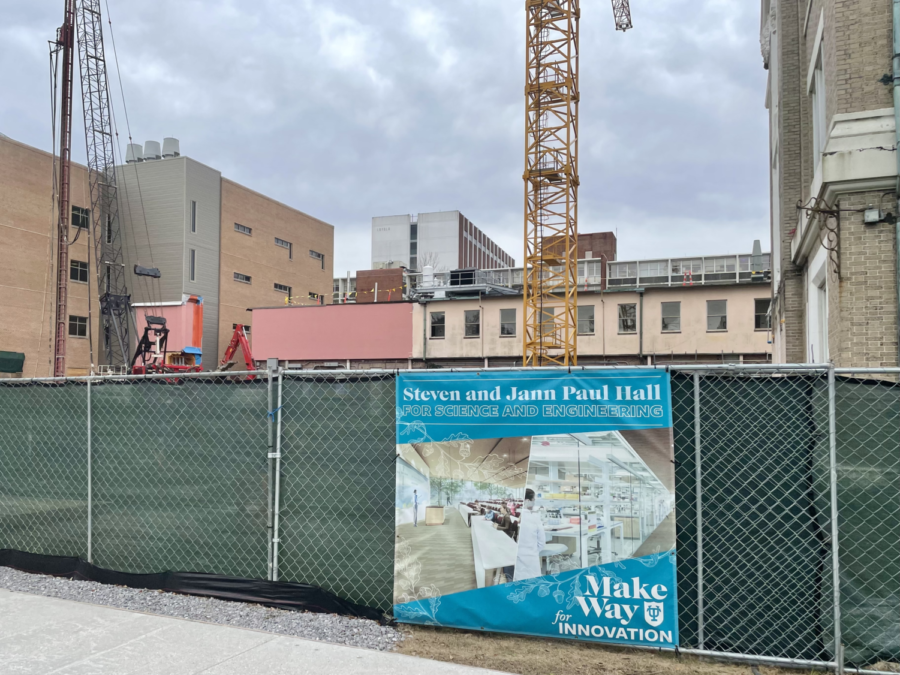Paul Hall construction moves forward
February 16, 2022

Come spring 2024, the 2,245 undergraduate students in the School of Science and Engineering will settle into Steven and Jann Paul Hall for Science and Engineering, nearly five years after the project was announced.
The five-story building, named for Steve ‘72 and Jann Paul, will sit between Stanley Thomas Hall and Donna and Paul Flower Hall.
Upon completion, the building will boast three floors of interdisciplinary research laboratories, an animal research facility and an auditorium with seating for over 200 people.
Steven Paul, president and CEO of Voyager Therapeutics, points to his undergraduate laboratory experience with Tulane professor Merle Mizell as the driving force behind the $10 million gift that named the science and engineering building.
“[I was] a young kid from Chicago who had no real formal scientific training, and [the research I did at Tulane] really taught me the essentials of science, and it was really what got me going in my career,” Paul said.
The construction project has faced significant challenges since the 2019 design phase.
Randy Philipson, vice president of facilities, campus development and real estate, said construction on campus was halted in March 2020 as the university “navigated the early days of the COVID-19 pandemic.”
As a result, demolition on the site was pushed back to 2021. The impact of Hurricane Ida compounded delays.
“Hurricane Ida presented a challenge as all construction had to be briefly stopped as we assessed the state of our campuses following the storm,” Philipson said.
Both Paul Hall and the new residential dorm project have been impacted by supply issues. Philipson said he anticipates topping off by summer 2023.
For Kimberly Foster, dean of the School of Science and Engineering, Paul Hall’s “‘open’ laboratories will be innovative and forward-thinking, supporting team-based work.”
As dean, Foster oversees over a third of Tulane’s undergraduate body and said she believes the open lab format will foster communication between scientists and engineers and allow labs to adapt to future needs and technology.
Tulane currently offers three undergraduate engineering programs — chemical, biomedical and engineering physics.
The school plans to expand offerings with an undergraduate degree in the new river, coastal science and engineering department, focused on civil engineering relevant to the Gulf Coast.
Foster said that “Paul Hall will strengthen Tulane’s position as a research giant in the prestigious Association of American Universities.”
“Paul Hall is designed to lift the veil on the engineering and scientific process, showcasing the work that our students and faculty are undertaking, the innovations they discover, and the impact that they are having on society,” Foster said.









Leave a Comment